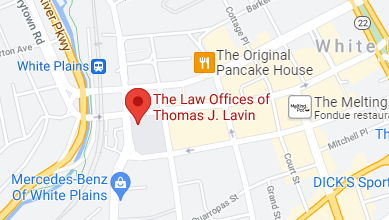Of the many tools that can be used in estate planning, a power of attorney is a valuable one. Different types of this tool have different functions. But one type of power of attorney recommended for nearly everyone is a durable power of attorney. Read on for more information on what that is and why it’s essential.
What Is a Durable Power of Attorney?
A durable power of attorney is a legal document that specifies your wishes regarding certain aspects of your life. It remains in effect if you become incapacitated in some way and can no longer make decisions yourself. Without it, some decisions would have to be taken to court, which can be costly and time-consuming.
There are two areas that this power of attorney can address.
- A financial durable power of attorney. This document authorizes another person of your choosing to make financial decisions on your behalf if you become incapacitated. They’re sometimes called an agent or an attorney in fact, although they’re not required to be an attorney. The person drawing up a power of attorney has the ability to decide how much or how little access they’ll give the agent. That can include anything from accessing bank accounts and retirement accounts to filing taxes or sorting through mail to manage financial documents.
- A healthcare durable power of attorney. This document names an agent who becomes responsible for making medical decisions on your behalf if you become incapacitated. This is often paired with a living will specifying what you do or don’t want in terms of things like intubation, CPR, feeding tubes, or other treatments and medications that could prolong your life. You can list the conditions in which you do or don’t want those medical interventions. These documents are also known as advanced healthcare directives when correctly drawn up. The agent named in a power of attorney is required to abide by the wishes stated in them.
Why Do I Need Two Separate Durable Powers of Attorney?
From a technical perspective, you don’t need two separate powers of attorney. The healthcare and financial powers could be combined in one document. However, it tends to make the decision-making process smoother if there are two separate forms. Then you don’t have financial organizations and professionals working through medical details and vice versa. Even if you have the same agent for both, it streamlines their work when they can separate the two sets of wishes.
When Does a Durable Power of Attorney Go into Effect?
In New York, a durable power of attorney goes into effect as soon as it’s finalized (which includes having it signed by witnesses and notarized). There are situations in which someone can dictate terms in the power of attorney that cause it not to go into effect until the person becomes incapacitated. That’s called a springing power of attorney. However, when creating durable powers of attorney, the point is to have everything in place so that the agent can act immediately upon the incapacitation.
When a power of attorney is drawn up to be springing, it can cause delays. The agent may have to wait for a doctor to provide a formal diagnosis of incapacitation. That can take days or weeks, significantly affecting both medical and financial decisions.
A springing power of attorney can also prevent an agent from acting for someone who is deteriorating but still has good days among the bad. On the good days, the person can act for themselves, but if they enter a bad period, having the agent be able to act for them before complete incapacitation is a good idea.
Who Should I Name as the Agent on My Durable Power of Attorney?
The only specific requirement for whom you name as an agent is that they can’t be a minor or incapacitated. New York law only stipulates that the agent be mentally competent. You can also name a secondary agent that can step in if the primary agent becomes unable to act as agent for some reason.
Sometimes people think they need medical or financial professionals to be the agent, but expertise in either field isn’t necessary. The critical aspect is naming someone you trust and fully believe to be ethical. That may be a family member, or it may be a close friend or business associate.
The agent should be someone you trust to fulfill your wishes, even if they disagree with them. The best way to determine that your proposed agent will do that is to have discussions before finalizing the powers of attorney. The agent should have deep knowledge of your wishes.
It’s acceptable to have different agents for each power of attorney or to name the same agent for each.
Once you’ve discussed this with the agent and finalized the powers of attorney, make sure copies of the documents are accessible with the locations known to the people who should be involved. The agent should have copies, as should close family members. The attorney will have copies if you work with an estate planning attorney to draw them up. If you work with financial professionals, provide them copies as well. The medical documents should be part of your medical records with your doctor or hospital.
What Should I Do if I Need a Durable Power of Attorney?
Call us at 718-829-7400 for a free case evaluation. Our experienced estate planning attorneys can guide you through detailing your wishes and selecting the appropriate agent.








